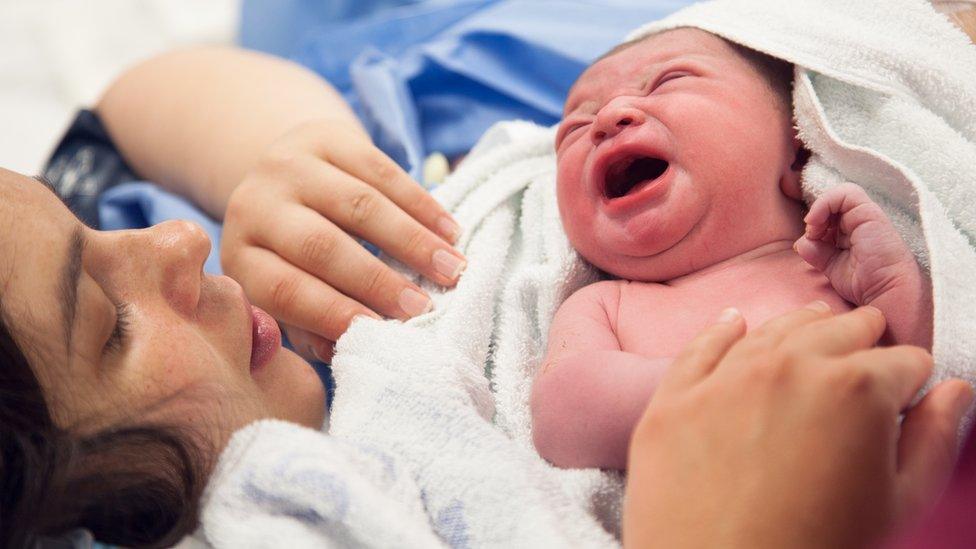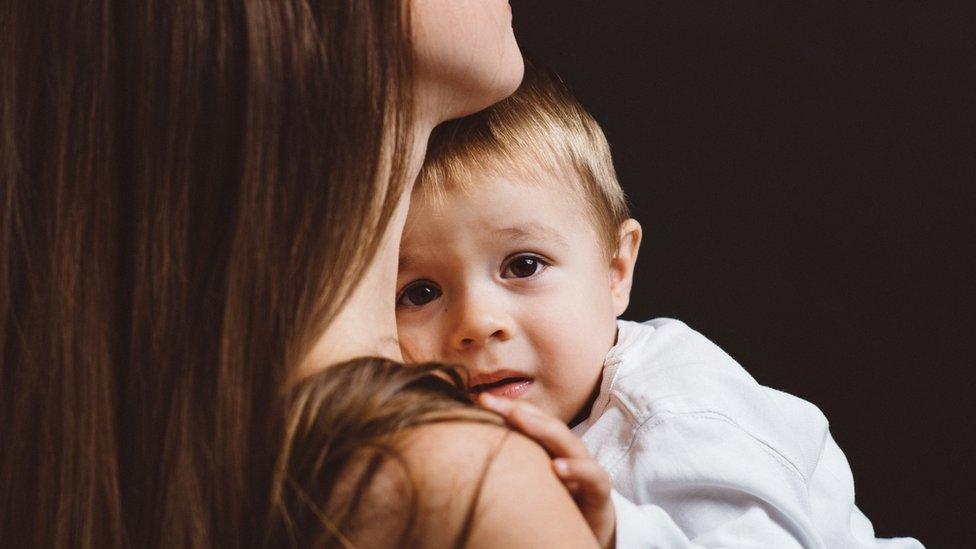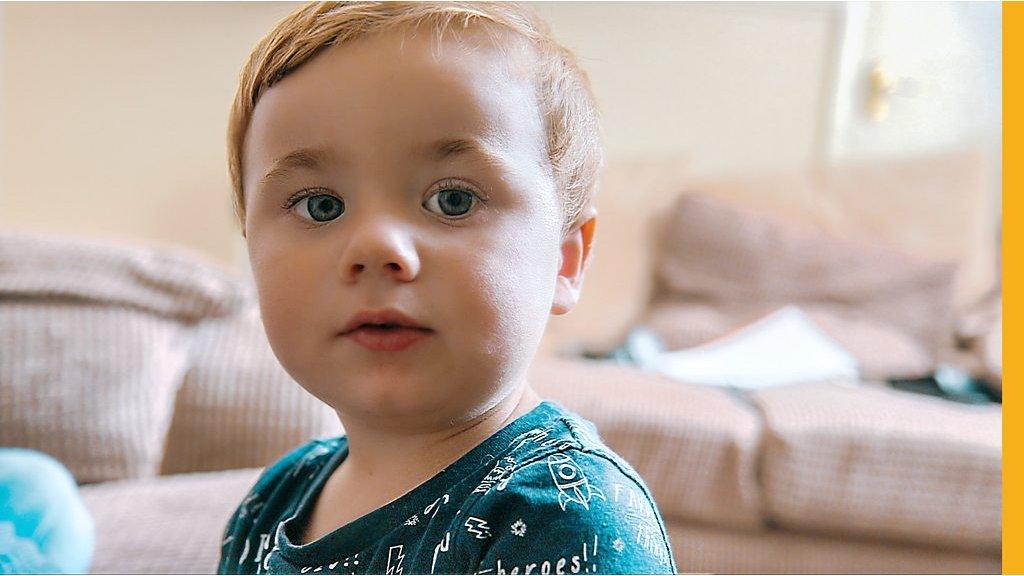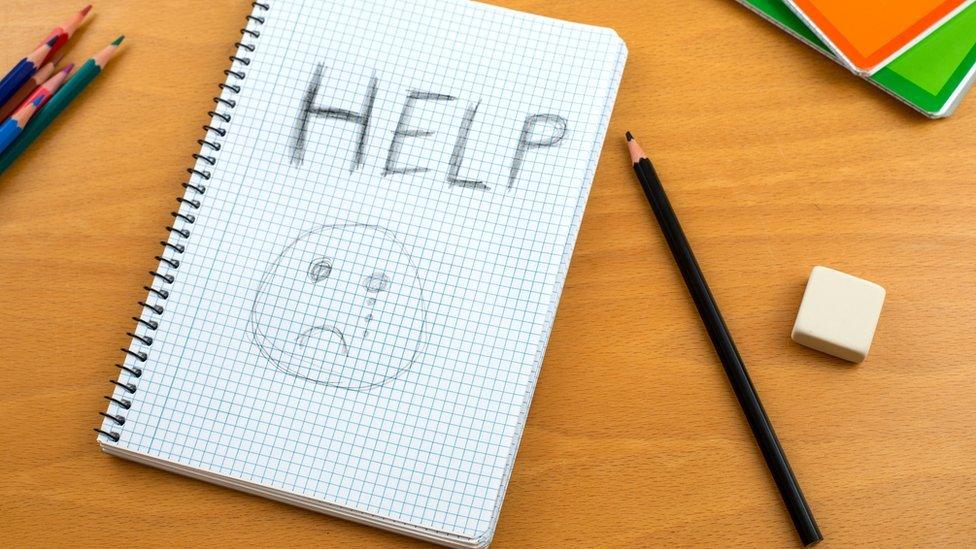Winter babies at 'higher risk of mental health disorders'
- Published

Cortisol levels rise naturally during pregnancy
Babies born during winter are at higher risk of developing mental health disorders, new research has found.
Researchers at Cardiff University found levels of the stress hormone cortisol were higher in women who give birth in autumn and winter than those who give birth in spring or summer.
Cortisol levels rise naturally during pregnancy, Prof Ros John said.
"Our data shows that autumn and winter babies are exposed to particularly high levels just before they are born".
Prof John said: "On average, women giving birth in the autumn or winter had 20% more salivary cortisol just before delivery than those giving birth in spring or summer.
"As higher levels of cortisol in pregnant women have previously been associated with a higher risk of children developing mental health disorders, the new findings could explain why these disorders are more common in people born during the winter months.
"They don't, however, explain the reason why women who give birth in winter or autumn have these higher levels of cortisol."
Researchers investigated the relationship between the seasons and salivary cortisol concentrations, depression and anxiety symptoms in pregnant women living in south Wales.
The team found a link between season and concentrations of salivary cortisol at term, external in the study, which involved 316 women.
The university said data was gathered at pre-surgical appointments and immediately after birth, through a questionnaire and notes recorded by the research midwife.
- Published25 July 2019

- Published18 July 2019

- Published12 July 2019

- Published4 June 2019

- Published20 May 2019

- Published10 April 2019
